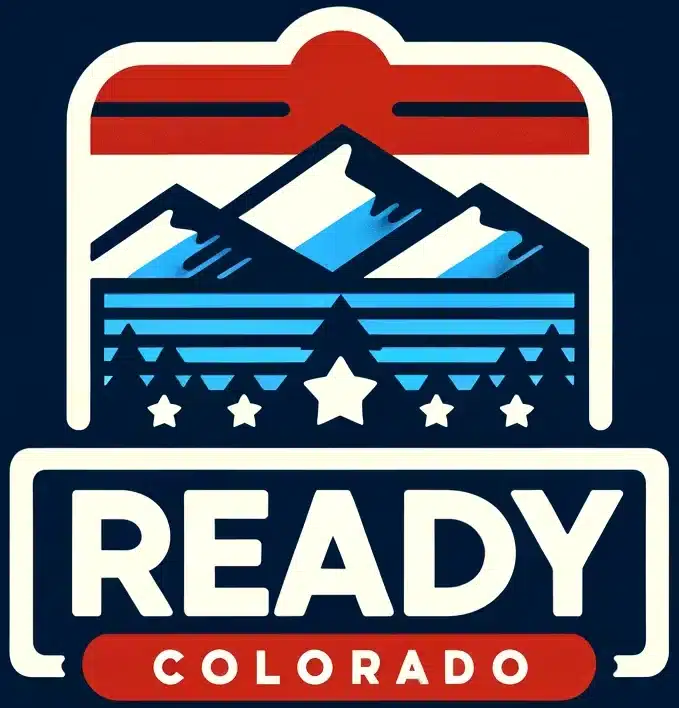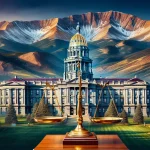Colorado has a dynamic political landscape shaped by its two major Colorado political parties – the Colorado Democratic Party and the Colorado Republican Party. These parties wield significant influence in Colorado’s gubernatorial elections, state legislature, and ballot initiatives. Key factors that define Colorado’s political climate include its diverse demographics, competitive electoral districts, the culture of political activism, and notable political reforms over the years.
In This Article
This article will provide an in-depth look at various aspects of Colorado politics, including political figures, campaign strategies, voter demographics, electoral processes, activism, endorsements, reforms, scandals, and opportunities for political education and involvement.
TL;DR
- Colorado has two major political parties, the Democratic Party and the Republican Party, that hold sway over state politics.
- Notable political figures, elections, ballot initiatives, and impactful reforms characterize Colorado's vibrant political scene.
- Opportunities abound for political activism, education, internships, and involvement in Colorado through rallies, volunteering, and think tanks.
Colorado’s Political Figures and Electoral System
A political party functions as a cohesive unit of individuals united by shared political beliefs, objectives, and ideologies. Each political party strives to shape public policy and governmental choices. Their core objectives involve seizing and retaining political influence through the selection of candidates for various public offices, championing particular policies and laws, rallying voter support, and engaging in electoral contests.
Colorado has produced many influential political leaders from both parties over the years, demonstrating its position as a coveted swing state when it comes to election results.
Colorado employs a caucus system for candidate selections and ballot initiatives for election day to directly involve citizens in policymaking. The state also has generous voter registration policies like same-day registration and voting by mail. These electoral processes spur high voter turnouts on election day.
Each primary election is a crucial event organized by political parties to nominate candidates for a diverse array of elected positions, spanning from federal to local levels within the government. The Colorado Republican Party and the Democratic Party will get a say for their specific candidates in the primary election season.
The general election is a little more involved. In the electoral process, the general election marks the culmination where voters make their selections for candidates across different elected positions. For Presidential elections, each state is allocated a certain number of Electoral votes within the Electoral College. This is where districts, population, and voter registration come more deeply into play.
Campaigning and Financing in Colorado Politics
Modern political campaigns in Colorado incorporate strong ground games to personally interact with voters across its vast geography. Digital advertising and analytics tools provided by firms like NGP VAN are also utilized for voter targeting.
Strict campaign finance laws passed through ballot initiatives limit contributions from organizations like corporations and unions. Significant self-financing by wealthy candidates also occurs. These dynamics shape how races from school boards to the governor’s mansion are contested.
Political Demographics and Districts in Colorado
Colorado’s political demographics feature a diverse electorate divided between growing progressive urban centers and more conservative rural areas.
Redistricting in Colorado occurs through nonpartisan commissions. However, political party disputes frequently emerge over proposed maps for congressional, state legislative, and county commission seats as political control hangs in the balance. Redistricting can have an effect on both voters and candidates.
Political Activism and Rallies in Colorado
A culture of political activism thrives across Colorado, with issue-based rallies occurring year-round at the state Capitol on causes like climate change, reproductive rights, and gun laws. Occupy Denver and Tea Party protests have also demonstrated the state’s engagement.
High-profile speakers routinely hold rallies before key elections. These events energize party activists on the ground. Environmental and social justice nonprofits also stage attention-grabbing protests against oil companies and other targets.
Political Debates and Endorsements in Colorado
Hard-fought campaigns in Colorado motivate numerous debates and high-profile endorsements during election season. Debates between gubernatorial and U.S. Senate candidates are broadcast statewide. Competitive House races also draw local coverage of debates.
Newspaper editorial boards provide influential endorsements that campaigns tout in advertising. Endorsements from prominent politicians also frequently occur, with mixed results on swaying voters in the end due to polarization.
Political Reforms and Scandals in Colorado
Colorado is at the forefront nationally of political reforms. Redistricting reforms, campaign finance laws, expansion of voter access policies and the creation of primary elections trace back to citizen-led ballot initiatives.
Political Education and Opportunities in Colorado
Top Colorado universities provide extensive political science course offerings and internship pathways. Groups like the University of Denver‘s Institute for Politics, Policy, and Political Engagement prepare undergraduates for careers in government and the public sector through nonpartisan training.
Think tanks like the Centennial Institute and Colorado Civic Engagement Roundtable conduct policy research and engagement opportunities around issues impacting the state. Aspiring political operatives can also volunteer on campaigns or apply to paid fellowship programs focused on campaign training.
FAQ
How are Colorado’s electoral districts determined?
Colorado utilizes nonpartisan commissions to determine Congressional and state legislative districts each decade following the Census. Commissioners are randomly selected citizens.
What campaign finance laws exist in Colorado?
Strict laws passed by voter initiatives limit contributions by corporations, unions, issue committees, and single-donor committees. Candidates must disclose donors.
Where do major political rallies occur in Colorado?
The State Capitol and Civic Center Park in Denver are home to high-profile political rallies. Large venues like the Bellco Theater in the Denver metro area also host major party rallies.
What political reforms has Colorado implemented?
Major reforms include nonpartisan redistricting, presidential primaries, campaign finance laws, all-mail voting and same-day voter registration stemming from citizen-led ballot initiatives.






